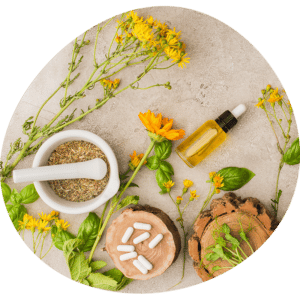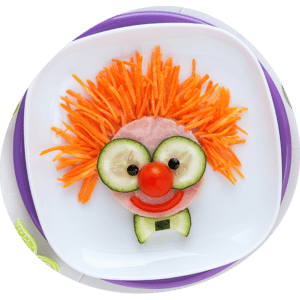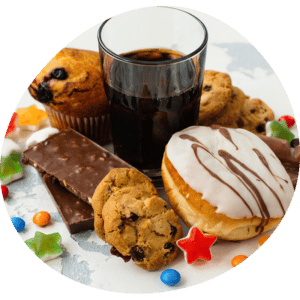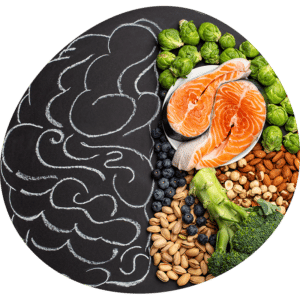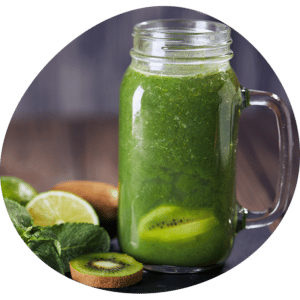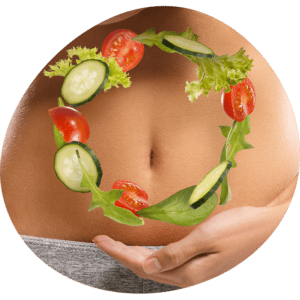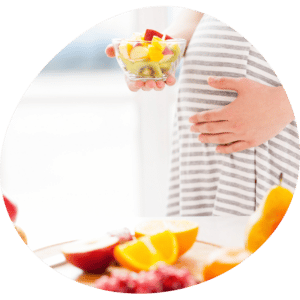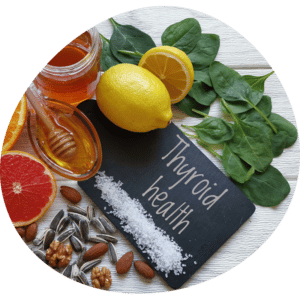Is a new healthier you on the agenda?
Need to lose a few kilos?
Has your weight loss plateaued?
Are you tired?
Bloated?
Stressed?
Here’s the naturopathic ‘how to’ guide to a detox diet…
There are many reasons why detoxification may be necessary for you to enable you to reach or maintain a state of optimal wellness. Some of these reasons are within our control, such as poor diet and alcohol intake, whereas some factors are out of our control such as air pollution and toxins which are produced during digestive processes. In a healthy person, these toxins are mostly easily dealt with and detoxified via the kidneys and liver, however years of toxic accumulation and impaired functioning of these organs, can gradually start to affect our health and manifest as signs such as fatigue, premature ageing, bloating, weight gain, headaches, nausea and more.
Instead of restricting your diet and making a detox difficult, it is important to focus on replacing unhealthy options with healthy ones and ensuring your body receives enough nutrients and protein to promote proper functioning of your detoxification organs as well as promoting stored toxin mobilisation and excretion. Making these changes permanent, will benefit your health in the long term.
Water is essential for your detox diet
The single most important dietary inclusion is water. Water is essential for health and wellness. Water is a basic requirement that many of us don’t consume enough of. Signs of water deficiency can range from headaches, fatigue and excessive or lack of appetite, to premature ageing, constipation and fluid retention. Drinking a minimum of 2 liters of filtered water per day is essential for many bodily functions, including flushing toxins out of the body via the kidneys. If you are an outdoor worker, laborer or do a lot of exercise, your water requirements will be higher. It may be necessary to add an electrolyte replacement to your water to ensure proper functioning of your cells and to reduce symptoms of electrolyte deficiency such as cramping. Great dietary sources of electrolytes are pink himalayan salt or coconut water. Try adding a pinch of good quality salt to each litre of water to optimise hydration levels.
Do your meals contain a good portion of protein. Protein portions for meals should be about the size and thickness of your palm (no fingers). Snacks could be an egg or quarter of a cup of raw nuts and seeds. Protein is required by the liver to bind to toxins in a process called conjugation where they are then safely transport out of the body. Most protein sources are animal products. Animals are exposed to the same environmental toxins that we are, therefore it is important that you choose organically farmed, free range animal products in your diet to reduce your intake of pesticides and chemicals which can increase your toxic burden.
Low glycemic carbohydrates are a great fuel source as well as a source of many vitamins, minerals and phytochemicals that are required by your body to promote detoxification as well as a variety of other life sustaining processes. It is important to avoid grains such as bread, pasta and rice as they are the equivalent of eating sugar and can be the source of inflammation. Most white grains are devoid of nutrients. The term negative nutrition can be applied to these foods as they require vitamins and minerals to process them and break them down, but they do not provide the body with any nutrients in return, therefore after years of eating such foods, your body becomes depleted of essential nutrients. Most of your carbohydrates should be obtained from raw, fresh, organic fruits and vegetables. Examples of good carbohydrates are listed in the table below. If you are budget aware, it is best to spend your money on organic foods that when grown conventionally, have a high pesticide residue. Have a look at the dirty dozen – high pesticide residue, and the clean 15 – low pesticide residue and ok to buy the conventionally grown variety. Research shows that for optimal health and wellness, we should be consuming 13 serves of plant based foods per day.
Good fats are required by every single cell in your body and are also required for hormone production. Unfortunately, your body can’t manufacture omega 3 fats, so it is important to consume adequate amounts of them daily as part of a healthy diet. 2 tablespoons of good quality, cold pressed vegetable oil such as olive oil can be used as part of a salad dressing or to cook with and it is also important to consume Omega 3 fatty acids from cold water fish at least 3 times per week. If you don’t eat a lot of fish, then speak to your Naturopath about supplementing with good quality fish oil high in EPA and DHA fatty acids.
Fiber is essential for not only keeping your bowel regular, but also controlling bad cholesterol reabsorption and acts like an intestinal mop which binds to toxins and delivers them to the bowel for excretion. Ensuring you consume adequate amounts of vegetable based fiber daily will facilitate detoxification.
Superfoods are very high in essential nutrients. Some superfoods have a detoxifying action by either binding to a toxin directly, or by stimulating the body to manufacture enzymes which draw toxins out of hiding in fat or bone. A daily serve of superfoods will keep your energy levels high and maintain the hard work you have undergone on your detox. You may want to add a superfood supplement to a breakfast smoothie to increase the results you will experience. Your local health food or organic food market will have many of the superfoods listed below.
Protein:
Chicken Turkey Beef (small amounts) Lamb Eggs Salmon
Mackerel Sardines
Whiting
Nuts (soaked is best) Seeds
Carbohydrates:
Fruits i.e. berry, apples, apricots, lemon, cherries, grapefruit, melon, peach, lime, passion fruit, pears. Raw or lightly steamed vegetables i.e. asparagus, green beans, broccoli, capsicum, cauliflower, eggplant, onion, garlic, zucchini, squash, Asian greens, carrots, celery, fennel, mesculin, spinach, watercress, cucumber, mushrooms, rocket, leek, Brussel sprouts, snow peas, radish, cabbage, bean sprouts.
Vegetables and nuts also contain carbohydrates.
Fats:
Nuts i.e. cashews, almonds, pecans, brazil nuts, hazelnuts, pine nuts, macadamias, walnuts etc (best to avoid peanuts). Seeds such as pumpkin, sesame, sunflower, flax. Avocado
Olive oil Flaxseed oil Omega 3 oil from fish. Coconut oil Olive oil Unsweetened nut butters (not peanut)
Fiber:
Psyllium Nuts Seeds High-fiber vegetables such as celery.
Fruits high in pectin such as apples.
Superfoods:
Seaweeds such as nori and wakame.
Garlic Spirulina
Chlorella
Barley grass
Wheatgrass
Acai
Unprocessed raw honey
Berries Herbs such as coriander, ginger, garlic, basil, oregano, sage, thyme, parsley etc
Replacing unhealthy substances with healthy ones is the key to making the detox process easy. Here are some suggestions for some of the more common indulgences.
Coffee and Black Tea: Dandelion coffee or tea, green tea, white tea, rooibos tea, herbal teas such as peppermint and chamomile, lemon in hot water
Alcohol and soft drinks: Soda water, fresh lemon, lime and mint with a tiny dash of bitters.
Chocolate and sweets: A quarter of a cup of almonds with half a cup of low GI fruits such as berries.
Unsweetened dark chocolate or raw chocolate that has been naturally sweetened without sugar.
Bread and pasta: Zucchini noodles, Cabbage noodles, Shiritaki/Miracle/Zero/Konjac noodles (check the health food aisle in the supermarket), paleo bread
Milk and dairy: Unsweetened almond milk or coconut milk are good alternatives
Sugar-filled breakfast cereals: Paleo Granola
Exercise is essential for promoting circulation and moving fluids through the lymphatic system. Toxins can be stored and transported in the lymphatic system; therefore 30 minutes of brisk walking, swimming or yoga on most days will help to facilitate toxin removal. Exercise also boosts the happy hormone serotonin, as well as ensures your bowel stays regular, so you’re excreting more toxins.
Remember that it is always a good idea to have a check up with your Naturopath before embarking on a detox diet. If you have an autoimmune condition, some of the foods listed above won’t be suitable, and you will need a more personalised plan. You may also need some supplements to facilitate the detoxification process. The best detox supplements can only be prescribed by a Naturopath after a consultation.
For more information on detox, please feel free to call me on 0401537445 to book an appointment with me for a personalised detox plan, which includes testing to see what sort of detox would benefit you most, as well as a complete detox diet meal planner and recipes.
Yours in health,
Share this Blog
If you enjoyed this article share it across your socials


